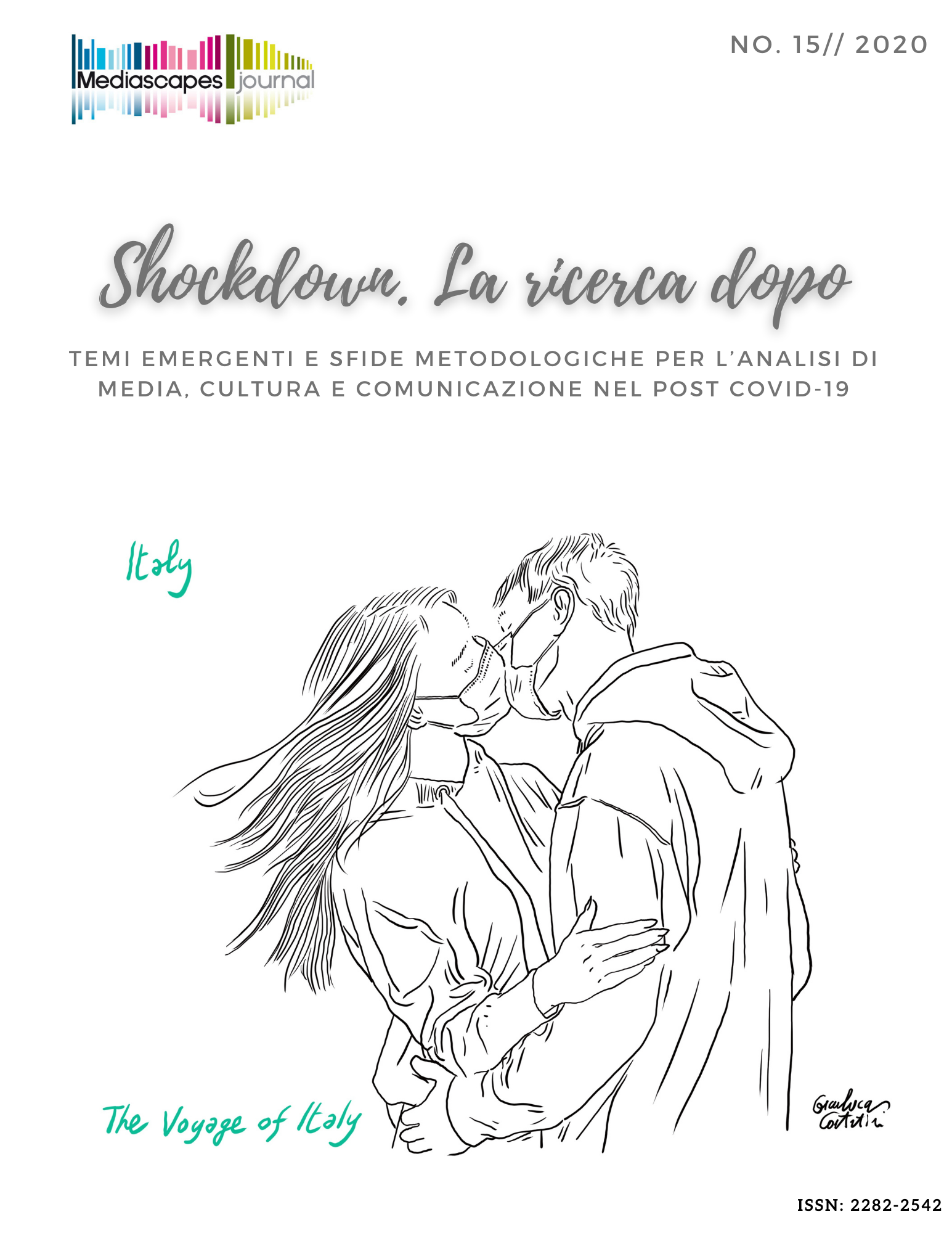Familiare che non sei. La fuga dalle grandi città: viverla in itinere, pensarla ex post
Keywords:
crisis, family, big cities, life trajectoriesAbstract
The SARS-CoV-2 virus – declared a global pandemic on 11 March 2020 by the World Health Organization (WHO) – has, among other elements, emphasized a condition of precariousness and uncertainty present in big cities. One effect of this unveiling were the escapes, the exodus that took place almost with the same intensity – obviously graded by size of the centers and states – in each nation where the epidemic wave was detected and the containment measures of the lockdown were been introduced. This short article keeps track of what has appeared in the media and what has been word of mouth about the escape from big cities as a result of the lockdown. Furthermore, it offers food for thought on this phenomenon with particular reference to what happened in Italy and above all by introducing southern dimension in the perspective of these returns. Most of the returned are students, temporary workers, members of families separated by work reasons. The speed with which these people have returned makes one think and pushes ourselves to wonder – even if it would be more appropriate to ask them – if now that lockdown is over they will go back to the North or choose to stay in own countries of origin. The background question is if they will return to places where their family does not live, in places chosen only to try to improve their economic conditions, attempt social mobility or for attend university, or if this escape caused by the pandemic has produced/will produce biographical transitions. Was the pandemic a turning point? Have we all learned something from it or are we going back on the same path? Will this pandemic crisis produce regeneration or relegation? It is still too early to have got the answers to these questions, but we can say that, these escapes brought out: the precariousness and uncertainty of big cities, the role and importance of the family in times of difficulty, the possible consequences of the pandemic on people’s lives.
Downloads
Published
How to Cite
Issue
Section
License
Mediascapes Journal is published under a Creative Commons Attribution Licence 4.0.
With the licence CC-BY, authors retain the copyright, allowing anyone to download, reuse, re-print, modify, distribute and/or copy their contribution. The work must be properly attributed to its author. It should be also mentioned that the work has been first published by the journal Anuac.
Having published these contributions for the first time, Mediascapes Journal will have the right to publish them integrally or partially as reprints or possibly as part of a thematic issue, in both digital and printed format.
It is not necessary to ask further permissions both to author or the journal.


